Richard Monette on Native sovereignty, owning land and law
By Marisa Wojcik | Here & Now
March 3, 2023
University of Wisconsin Law School professor Richard Monette explains how the legacy of federal policy toward Indigenous lands shaped a Lac du Flambeau tribal government dispute with property owners.
VIDEO TRANSCRIPT
FREDERICA FREYBERG:
Why are there so many non-tribal homeowners on the Lac du Flambeau reservation? Part of the answer goes back more than a century when in 1887, the federal Dawes General Allotment Act carved up Indigenous land for individual ownership. Marisa Wojcik speaks with Richard Monette, a UW-Madison professor of law and director of the Great Lakes Indigenous Law Center.
MARISA WOJCIK:
Generally, what did Indigenous lands look like before the Dawes General Allotment Act came into place?
RICHARD MONETTE:
They almost didn't look like anything to the untrained eye. And that's part of the problem with European Americans coming over, Europeans coming over and not seeing territory and not seeing property. Maybe territory defined a little differently, you know? Different nations shared territory, maybe seasonally, et cetera. They didn't quite get that. There certainly was property, you know, different tribes, different families. Clans had fishing sites, had sugar bushes, had places where they did their ceremonies. They didn't see all that. So long and short of it is there actually was territory and there actually was property at the time of contact. But otherwise it looked used, maybe it looked unused to the untrained eye again. But those lakes were very well maintained for wild rice. They were very well maintained for gathering roots of cattails. They were very well maintained for helping the deer, et cetera, make beds in the reeds and have small trees and then bigger trees, et cetera. You know people didn't just go around on their hands and knees nibbling berries off the bush is what it seems like people think, right? This was thousands of years of roads, common ways, trails, paths to these places, to water, to food. So it looked a lot more like we would understand if our eyes were trained to understand that.
MARISA WOJCIK:
There weren't these like hard, rigid boundaries like we see when we see maps today?
RICHARD MONETTE:
Almost never for territory or property. On the other hand, a lot of European land was the same way which was leading to a lot of wars about that time. So still even in that sense, not that different from what had gone on. And you know, we find in this country that there are pockets of immigrants that came to America just three, four generations ago and they have not always comported with the American property system as we know it either. So you can find a pocket in northern Wisconsin or northern Minnesota where you think, well, you see land being exchanged and they're having arguments about probates and trusts and and things and it's because they were not very technical about it, very formal about it, the way we kind of understand it today. So what's clear is that the tribes had territory, they had property. It didn't exactly look like ours but you know the property from Texas to Wisconsin doesn't look the same. Guess which one has more rigid boundaries between their territories and properties? Not very hard, right? That Texas does. And Wisconsin is a little more loose 'cause we have a rather robust public trust. We really value people being able to get to the lakes and the rivers, et cetera. So property varies from polity to polity, from jurisdiction to jurisdiction, everywhere. And you just have to be trained to see it. And so it's easy not to but it's important to start to see that sort of thing.
MARISA WOJCIK:
And the Dawes General Allotment Act in the 1800s. What did that do?
RICHARD MONETTE:
In 1887, the Dawes Act named after the senator who was sponsoring it, otherwise known as the General Allotment Act, did what was actually in a few treaties before that, by the way. And there may have even been an act or two before that. Attempted to take what was the then legally recognized territory, usually because of a treaty of a tribe and divided up into property, divided into severalty. Generally from 40 acres to 160 acres, sometimes a little less, sometimes a little more depending on the numbers, reservation size, et cetera. But it was with the intent to, purportedly, to make farmers out of natives, make private property owners out of them. And one statement that was attributed to Teddy Roosevelt is the act is a great pulverizing engine to destroy the tribal mass. That's what he said. So it did that. You know on many reservations like Lac du Flambeau, the federal government came in and drew lines in disregard of all those prior sugar bushes and fishing holes and what other places where families had relatively recognized quote unquote ownership. They came in with a ruler and a pen and divided up the reservations. Often, not always, but often along the American system of meets and bounds and township lines, section lines, et cetera. And individual Indians and families ended up with private property in the American sense of the word.
MARISA WOJCIK:
And they did this tribe by tribe, one at a time. Did tribes or individual people have any choice in the matter?
RICHARD MONETTE:
That was depending on tribe by tribe too? Sometimes the strength of the tribe, more often having to do with the value of the land or their relationship with perhaps their federal congressional delegation who may or may not have been supportive. Interestingly enough, the Wisconsin Legislature was rather supportive of the Chippewa tribes right about at that time in the history in the late 1880s when there were attempts by the federal government to remove them to Oklahoma, people of the state of Wisconsin including a significant part of the Wisconsin Legislature that convinced everybody to let the status quo be and leave the Chippewa here. So it's a fascinating story but it did go from reservation to reservation. Many of them, not all of them, some of them were able to fend it off entirely. And nonetheless, on those reservations, people have homes and things. So in other words, the tribe is sort of maintaining a property system the way they did pre-contact. They're keeping care of their people, their families, their clans, who holds what, who works what, just like they always did. But on a lot of reservations and including a few in Wisconsin, they were subjected to the Allotment Act. Sort of the key things about the act are really two main ones, let's say. One is that the act imposed a trust, said the land would be held in trust for 25 years so it couldn't be sold. And that was good and bad. It was good in that it couldn't be sold. It was bad in that it made the Bureau of Indian Affairs and the Secretary of the Interior the trustee. And so they started acting on behalf of the tribes and the tribal members as trustees do oftentimes unilaterally. And thus we find rights of ways and easements and/or the Bureau of Indian Affairs leasing their lands for gas and oil, for timber, for grazing and for roads, right? So that's how we sort of fast forward to get to this. And then it's important along that historical line to recognize that, well, that 25 year period expired and the tribes lost significant amounts of land through a variety of means, foreclosures by banks, by creditors, sheriff sales, forced, a fee patent exercises by the federal government and of course, intermarriage and offspring or grand offspring not meeting the tribe's requirements for membership. So people are sometimes surprised they see the big square on the map and they say, "Well, that's the reservation, "how did there get to be so many non-Indians in there?" This is largely how that occurred, was the allotment process. One little point, maybe not so relevant here, but a lot of tribes had more than enough land to be divided up by families and then they had a lot left over. And then those tribes cases, that land was surplussed, returned as they would say to the public domain and opened for homesteading to any American. So we ended up with significant populations of non-natives in reservations and that's leads to sort of the issues with Lac du Flambeau. Now the number two though is that 25 year period was interrupted a couple of times but one main time Congress passed what was called the Burke Act in 1906, authorizing the Secretary of Interior to decide, determine if an Indian allottee was competent to deal with that allotment as a private citizen and they would remove the trust and hand the allotment over. And that just so happened to occur in some places more than others, usually where the land was valuable. Just so happened to occur at a place like Lac du Flambeau where there's some beautiful land along a lake and lo and behold that Indian was deemed competent to sell it, right? And so a lot of those lands can be traced back to that exercise as well. You know, another one of the uglier things that happen in American history that leads natives to say that they're hard pressed to find anything that America did that didn't have as its objective to separate them from their land and their wealth and this was another one. So you can then quickly fast forward to all these easements and all the people living on some of the best land in the reservations including at like at Lac du Flambeau and that's how we got here.
MARISA WOJCIK:
What was the cultural consequences of this on tribes and what was the impact on tribal sovereignty?
RICHARD MONETTE:
The impact has been huge. I mean, we can write books on the consequences of this but when you're not in control of how land is used in a territory, your sovereignty is greatly undermined. I mean, in the world plain, we recognize sovereignty as territory of peoples and recognition. And in that territory is a subordinate, you know sort of, that's where the peoples are and also divided into component property. And this was an outsider dividing the territory into property and then continuing to exercise it and work it. And so I said earlier about Texas and Wisconsin having different sort of lines in the sand in territory and property from each other. Well, it's because the state of Texas, the collective people in Texas view their relationship with Texas citizens and their property differently than Wisconsin does. And why that's important is you then can take a step back and say, well, maybe that is a facet of sovereignty to determine the relationship between Texas the state and the people, Wisconsin the state and the people. Lac du Flambeau the state, the tribe and the people. And that may be in fact one of the most discerning identity points of culture is the relationship they established between the whole, the tribe and the parts, the members, any state, any tribe. And so when an outside entity comes and does that sort of thing in one of the most central tenets of sovereignty territory, it's obviously going to have a huge effect and it has. So we can fast forward today and ask specifically, for example, does Lac du Flambeau set the balance between the collective and the individuals there? And it's finally getting back to that point where it's doing it. It has not done it enough, it stepped away under force of the United States of America for a good deal of that time, the most powerful nation on the planet and so they stepped back. And then there's also the relationship between Lac du Flambeau and the members and those who are not members, right? Generally, again, not the tribe's fault but there are some nuances in there that make it difficult. So it's had a very de devastating, almost incomprehensible, frankly, impact on the tribes.
MARISA WOJCIK:
Now eventually the Dawes Act did come to an end and the Indian Reorganization Act came into effect. What happened there?
RICHARD MONETTE:
Well, the Indian Reorganization Act said that land that was still in trust would have that trust extended, perhaps permanently to the extent that there was a lot of trust land left, maybe it started out at almost 150 million acres. And when the Dawes Act was passed, when the IRA was passed, maybe it was down to about 50 million acres so losing about two thirds of it. Nonetheless, a significant amount for it to stay in trust and no longer be allotted and not be lost through sheriff sales and not saying the owner is becoming a citizen and not saying their property has to now be recorded downtown in the county courthouse. That was a huge turn of events. But still land continued to be lost through family means and through intermarriage and blood quantum and all that. So it still was very difficult. But one of the things that we miss is the IRA, the Indian Reorganization Act was intended to facilitate a rebirth of tribal sovereignty and governance, right? Some self-determination. And to get to the specific point here, while they in fact resurrected their self-determination in a lot of arenas, when it came to governing property, they largely have not. And so you can get the codes like the Lac du Flambeau tribe and you peruse the code and you might see a sentence here about devising a house of a tribally owned or built home or a tribal member home even, perhaps. Or a sentence over here about something about roads. And a lot of these things, if they were put together would start to build a comprehensive code for governing private property. They've just not turned that corner yet. So that plays huge in what's happening here on the reservation.
MARISA WOJCIK:
So we look at this history and we get an understanding of what is happening. There's a lot of frustration from the non-tribal members that live on the reservation and the tribe is in a little bit of a defensive position, they're trying to make this negotiation and it won't go through. What do you think is gonna happen next?
RICHARD MONETTE:
Well, let's fill in those blanks real quick from that history part. First, let's make sure we're saying there's enough blame to go around and the Bureau of Indian Affairs, the state of Wisconsin, the town of Lac du Flambeau, abstract title companies, the tribe, there's all kinds of blame to go around. From that historical perspective, the Bureau of Indian Affairs was probably the font of these leases in the first instance and largely to blame for them. They probably issued some of those leases rights of ways, et cetera, without any consultation or consent from the tribe. You know you fast forward 50 or 60 years and we supposedly get this policy of self-determination, self-governance and now the Bureau of Indian Affairs says we can't do that without the tribe anymore. It's not surprising I suppose, some of us perhaps don't have a lot of sympathy for it but it's not surprising that Americans kinda go, "Well, when we wanted it, our government just took it "and now all of a sudden our own government is telling us "they have to go consult with these natives to do this." They're a little flummoxed too. Again, it's hard to feel sorry for that particular mindset but it is what it is across this entire country. So that's an interesting one. And then you fast forward and these leases that the bureau had entered into started to run their course, the Bureau of Indian Affairs then maybe tells the tribe, interesting point maybe not, nonetheless, tells the landowners that the lease for the access to your property is running out. And so those land owners talk to each other. A few of them may be called the Bureau of Indian Affairs, maybe one or two called the tribe. Most of them called their own town and county and state, right? That's who represents them. And when they did that, interestingly enough, you've probably heard the history up there but the town took the position, don't worry, we'll deal with it. And they sent them letters saying so and our attorney will deal with it. So the land owners kinda stepped back and I think it's fair to say more than assumed 'cause I think it's fair to say some discussions happened early on. But if they assumed anything, they assumed those discussions continued and they did not with any sort of substance at all. And so the Bureau of Indian Affairs probably should have pushed it harder at the time. The town probably just thought, "Well we'll just let it lie and it'll go away "just like those leases from 25 or 50 "or even 99 year leases," which are common, "They'll run out and the Indians will be gone, right?" Well, they ran out and they weren't gone. And instead there's a policy towards self-determination. So the Bureau in fact at that point goes to the tribe and the tribe is at the table. Who's more to blame? Probably the Bureau of Indian Affairs and the whole history of the United States of America. But being a democracy, Americans are largely to blame for that, right? In general, now as far as the separate sort of component institutions like a county or a town of Lac du Flambeau, yeah, they're things they could have done or things they didn't need to do like send a letter like that saying they were going to take care of matters and then not do it. That was not helpful for anybody. People wanna blame the title companies which I'm not a real estate expert. I'm guessing though that title companies at least are charged with some sort of constructive obligation to ensure that the property they're selling has ingress and egress, has access, right? So are they partly to blame? Yes they are. And so I see fingers pointing at them too. And the town and the BIA, all of that. Probably the trickiest one is the tribe and they will probably be upset with me for saying what I'm about to say so I'll apologize up front. If the tribe wants to be a sovereign, they should act like it with this too. 'Cause if the tribe had established a recording office, passed a recording law for property interest in their territory, that's what sovereigns do. The title companies would know where to look. In fact, it would become incumbent on the title companies to look there or commit their own malpractice for not looking there. And in the meantime, the tribe could be be charging a fee to do that. I mean, they could have a privately owned title or abstract company or the tribe could own it, you know? However they wanted to do it. But that's what sovereigns do. And that would've been such an easy thing to do here. And I've had to say this to multitudes of tribes in the last five years or so, when this kind of issue is happening at other places around the country increasingly. Somebody's going to govern all of these territorially and property based events. Somebody's gonna govern and if you want the Bureau of Indian Affairs to do it, have at it. That's what they've been doing for 100 years, that's why you're here. If you want the state to have it and it subsumes your territory and your property, being a prong of sovereignty, it's clear what you'll be losing. And if they start to subsume your people too, you're losing it all. So you know there is an easy decision, if you want this to be governed appropriately, you have to do it. And we hear some of them say, "Well, we don't really believe in private property "the same way." And my answer is, well, you don't get to reach that conclusion unless you govern it. We don't think that businesses should own land the same way. Well, you don't get to reach that conclusion unless you govern it. The answer is govern it, right? Bring your culture to bear to the governance, make title companies come there and do a search on your reservation without saying, "Oh, we have to go to the BIA," and we all know how that works, right? They're just multi-billion dollar lawsuit 'cause the BIA a couldn't keep track of these records, these exact kinds of records, right? So we all know how that works. We're in 2023, there's no reason for the tribes not to step forward and to fix this today. But that'll be hard. So let me, I'll finally get to your question, so here's what I think will happen and maybe should happen. We are all collectively to blame, Americans in particular, Americans collective. And so it shouldn't be surprising if the American government steps in or even has to step in. We've had these instances before where 99 year leases came up in the city of Salamanca in New York, Congress had to step in with hundreds of millions of dollars worth of settlement to take care of that. One of the more interesting ones was leases in Palm Springs, California with some of the people who lived in Palm Springs, you know Bob Hope, Walter Annenberg, wealthy, well-known people in our country. I'm not sure if their land was right on that land but actually I think it was or in part. So the 99 years, these Indians aren't gonna be here. Well, 99 years later they were there knocking on the door, by the way, your lease is up, right? Congress had to step in again. This one isn't as big as either one of those because of a city but as I said, in North Dakota this happened along Lake Sakakawea, non-natives owning homes along the lake inside the reservation. Yeah, Congress stepped in there too. I think that settlement was kept a little more quiet but the Congress had to step in. It's appropriate for Congress to do that here. Everybody who's to blame shouldn't be let off the hook in one way or another. And frankly, we are getting to the stage in 2023 where Congress might say, "We will settle this out, "the trespassing for 10 years now, future cost, "we will pay a few millions to do that "but we will do that under a couple of conditions. "Tribe, you will establish a recording office "so that these kinds of interests "can be registered somewhere "so that title companies can find it. "And Bureau of Indian Affairs, you will provide "all the technical assistance they need to do that." And that's what should happen and could happen here if this is done correctly. And then this kinda thing won't happen again and if it does, we know where the finger points.
MARISA WOJCIK:
Is that what's leading to the discrepancy between how much money the tribe is asking for and how much money the title company is willing to offer?
RICHARD MONETTE:
Yeah, I'm sure. I mean, they're trespass charges that title companies probably feel less responsible for. There would be some arguments for that. There would also be some arguments for them to be still part responsible. So absolutely and those are past damages. There will be present and future, what you might call damages or costs that somebody has to bear. The tribe knows that it has to bear some of those, not to mention the long term costs and perpetuity of this is another sort of glitch in their sovereignty that we're just going to tell 'em, "Well, you have to live with now." So unless we recognize that they will govern this whole system, they are losing a lot. And normally a sovereign will tax but we've made it very difficult if not impossible for them to tax so far anything; sales, land, property, income, anything. Although they're getting to the point where they're starting to figure it out. They might have a tax base, an economy, they might have enough people working, they've got now private property ownership. They may be turning that corner so that they can raise revenue, gain revenue through taxation which would be normally the way we would see this. So now it's all those costs have to be couched in the terms of a lease. And so really in a lot of ways lease is the wrong term, right? I don't know what the right term is but lease is not it 'cause lease has a meaning in our lexicon and this is not it. This lease is representing far more costs than a leasing of a private property parcel or private property interest. And so that's why we get the different values and and really at loggerheads trying to understand them.
MARISA WOJCIK:
What do you think is most important, especially for a non-Indigenous audience to understand about this situation especially if they feel like already most of the finger pointing goes to the tribe?
RICHARD MONETTE:
Well, I think they have to understand all this, the difficult, terribly difficult history that people say, "Well, I wasn't there, "I didn't have anything to do with it." Okay but you're there now. And it very clearly derives from that and and we have to be honestly assess that and take some ownership of that. And I think that's one of the more difficult things. And then understanding sovereignty which people don't. Why do these Indians wanna be different? Well, how would we like it if Iowa came and took over Wisconsin, right? Well, why do we wanna be different, right? That's their answers, whatever we can come up with, they can come up with the same ones and maybe even then some, right? So we just have to be honest about that history and that projected future into perpetuity and what it means for them. Some of them have to be honest with themselves. You know the turning point in the law is always knowledge. We expect people to act reasonably but we don't expect people to reason about something they don't know. We ask what people know all the time before we hold them responsible. Well, here's the thing, right? Very few of those people can argue that they didn't know that was an Indian reservation or that they didn't know that there was an access road and a lease and/or some sort of right of way. Very few of them can honestly argue that as far as I can tell. And there's not just the know, the subjective question of whether they knew, the reasonableness turns on the objective question whether they should have known. And that's where we get to the title company but just as much to Americans, right? Imagine the feeling of irony if you're a tribal member with this whole history of imposed American propertization, right? And then you're looking at a bunch of non-natives telling you that they didn't quite understand the property stuff at play here, right? It's hard for them to buy. So there are a lot of difficult dynamics we just have to take some ownership of what we've done in this country. Now as far as the tribe, you know, well, equities are equities and they understand the relationship; they teach this, between the collective and the individual. They teach people to assess those things separately so you can see how they're properly related and properly balanced. Well, these individual Americans, sure they're Americans and they're part of that whole ugly history but they're also individual people and they have some equity at stake and the tribe and its people will need to recognize that too. And I wish they would do it before it gets imposed on them. And then after the fact they say, "Well, we recognized it 'cause we had to." 'Cause they will, either way. And so that kind of conversation can happen in the right way.
MARISA WOJCIK:
All right Professor, thank you very, very much.
RICHARD MONETTE:
You're welcome very much.
More Social Issues
Recent Here & Now
Statement to the Communities We Serve
There is no place for racism in our society. We must work together as a community to ensure we no longer teach, or tolerate it. Read the full statement.
 Passport
Passport



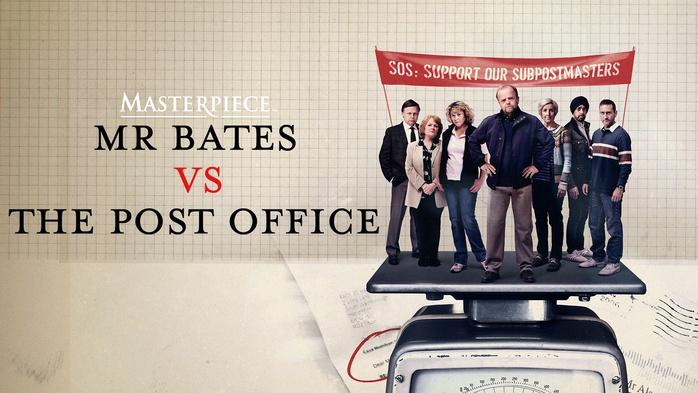
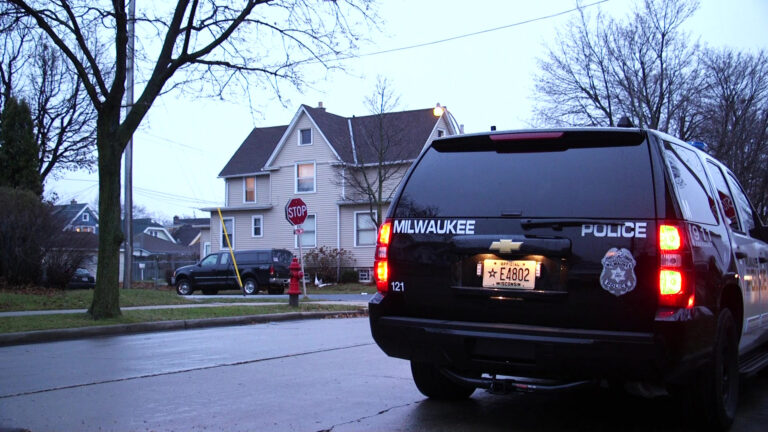
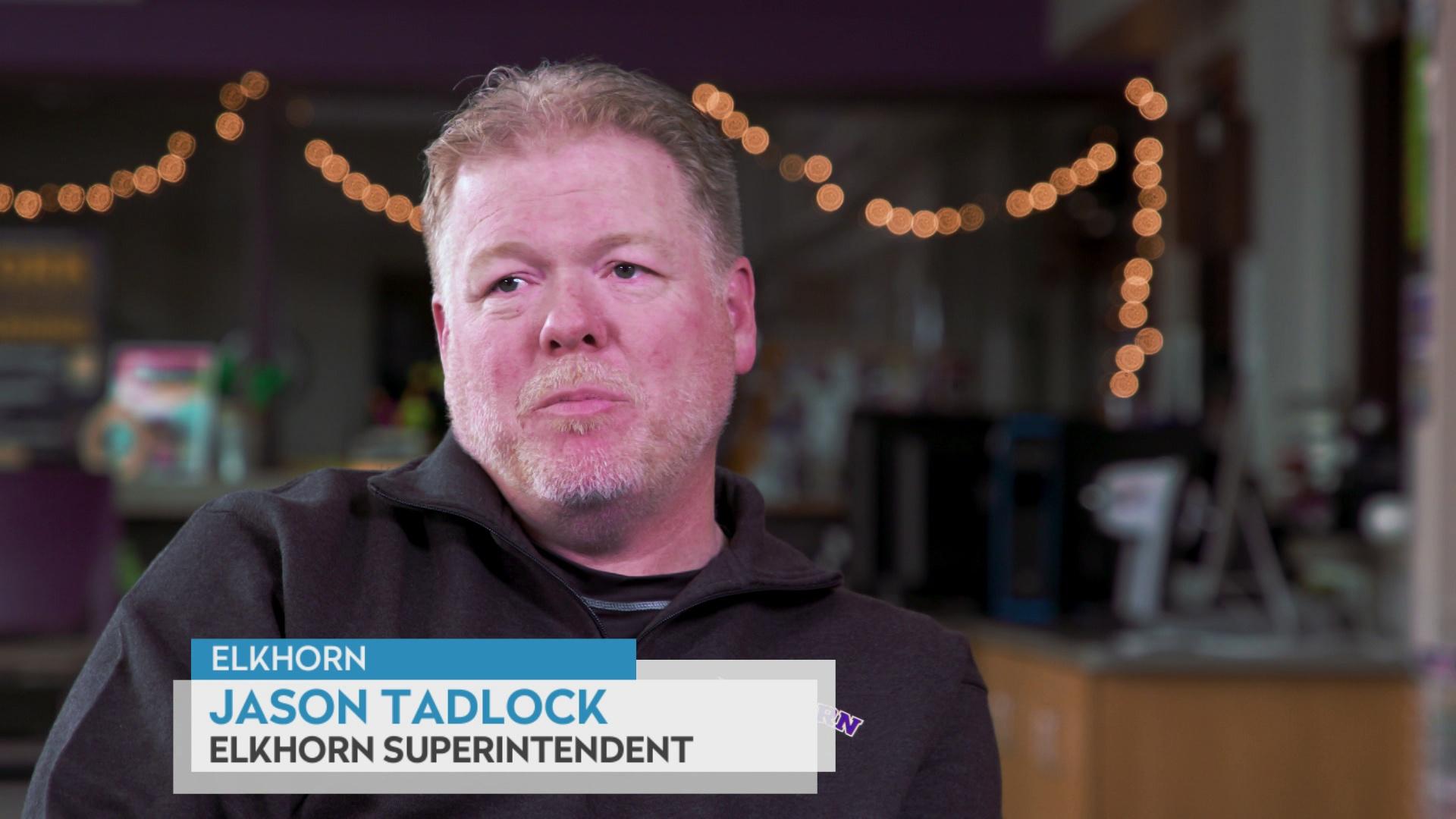

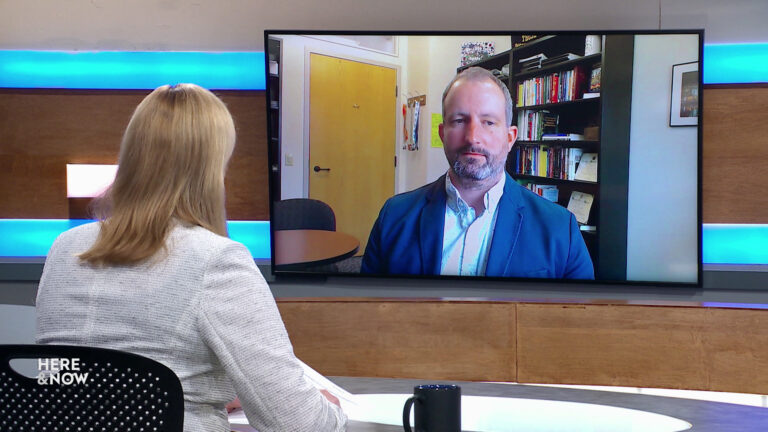
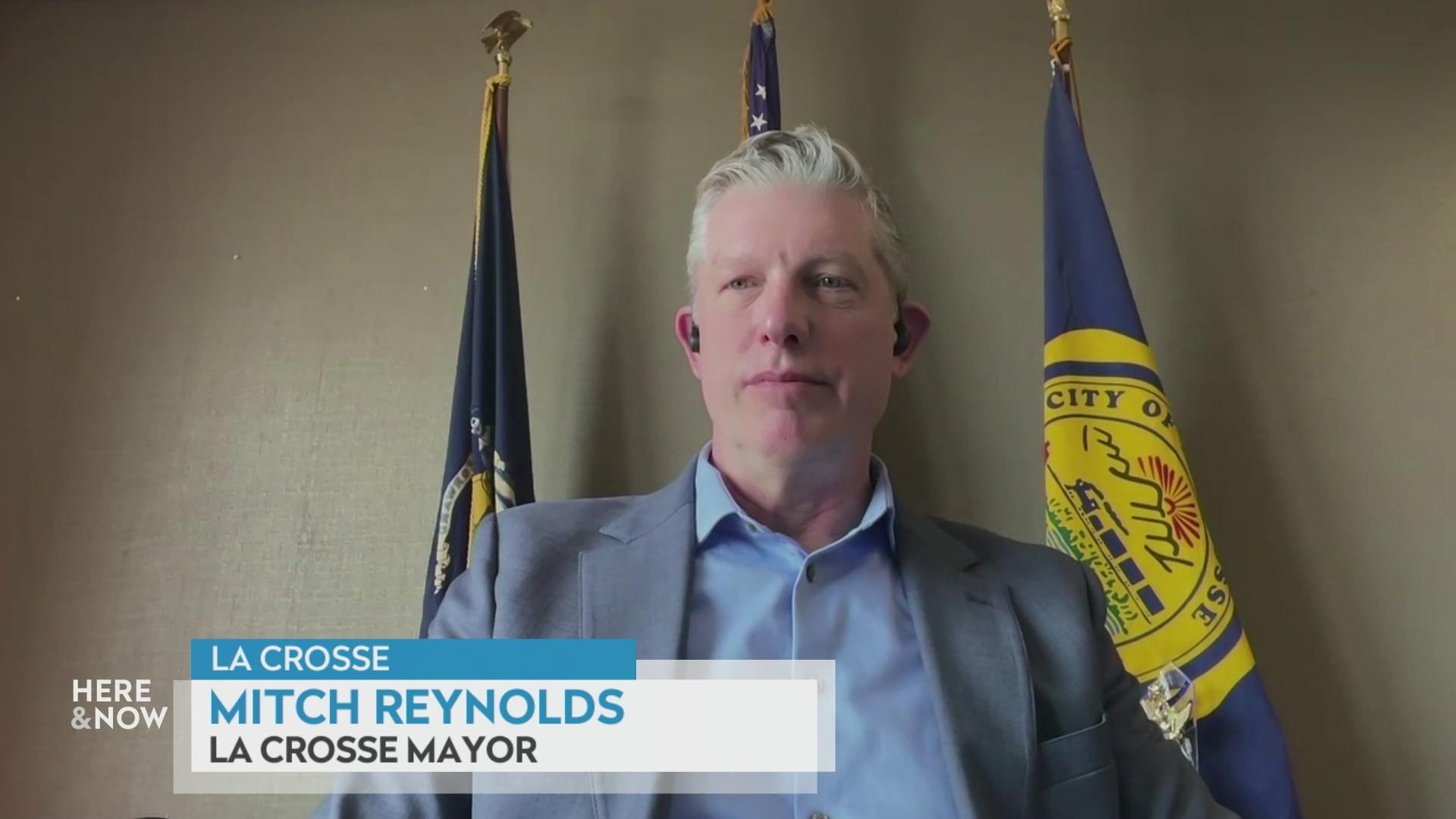
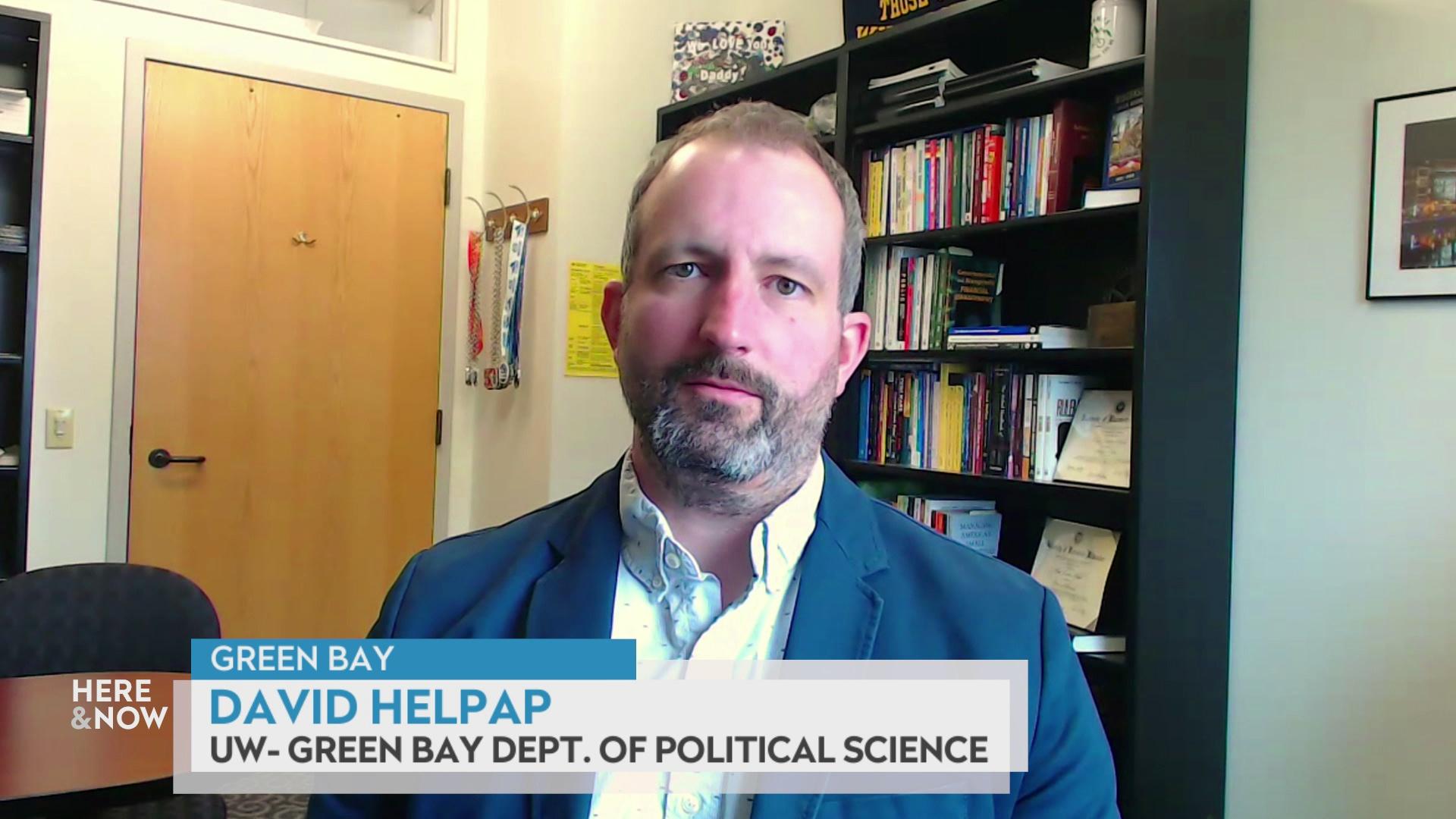
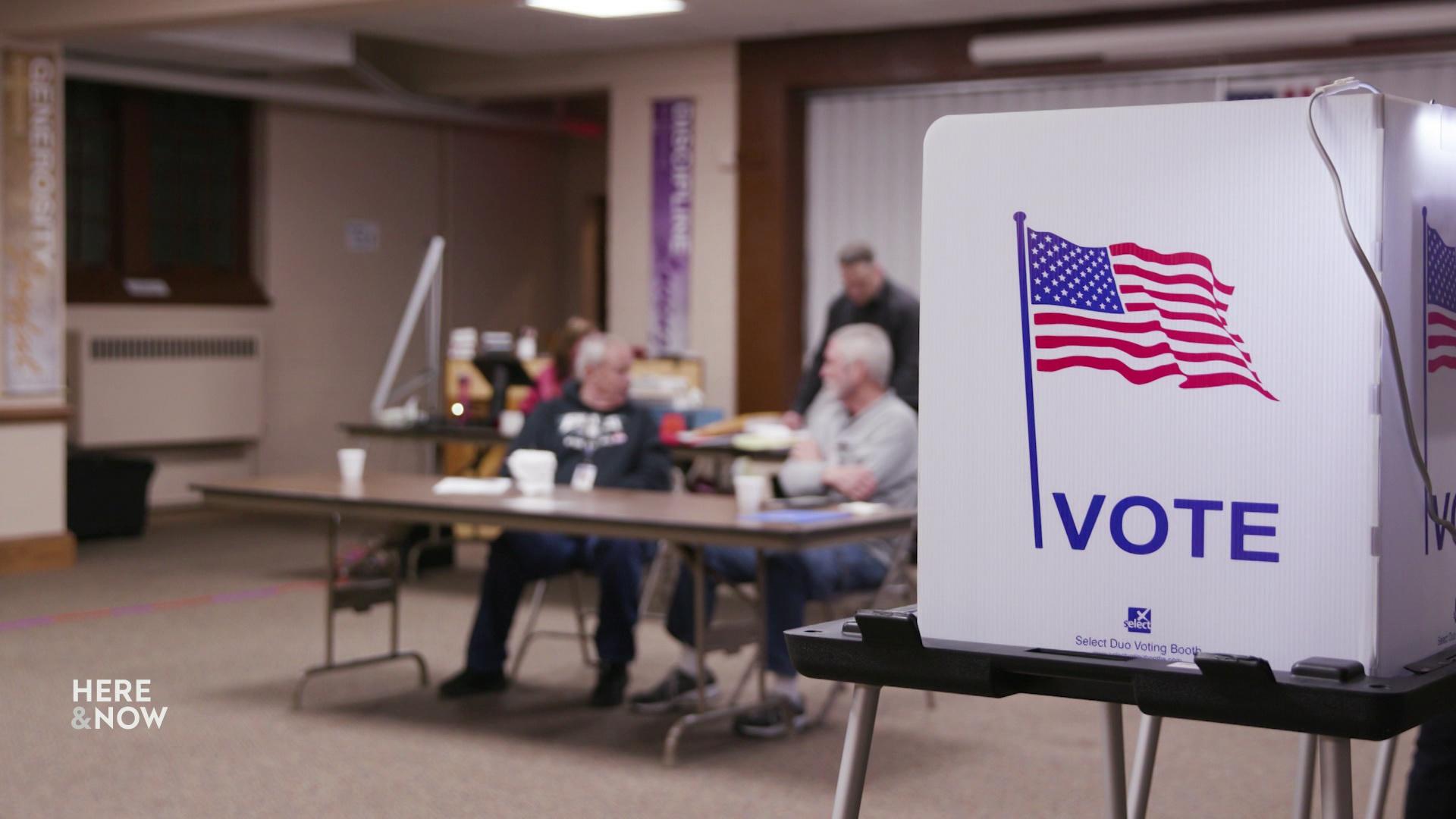
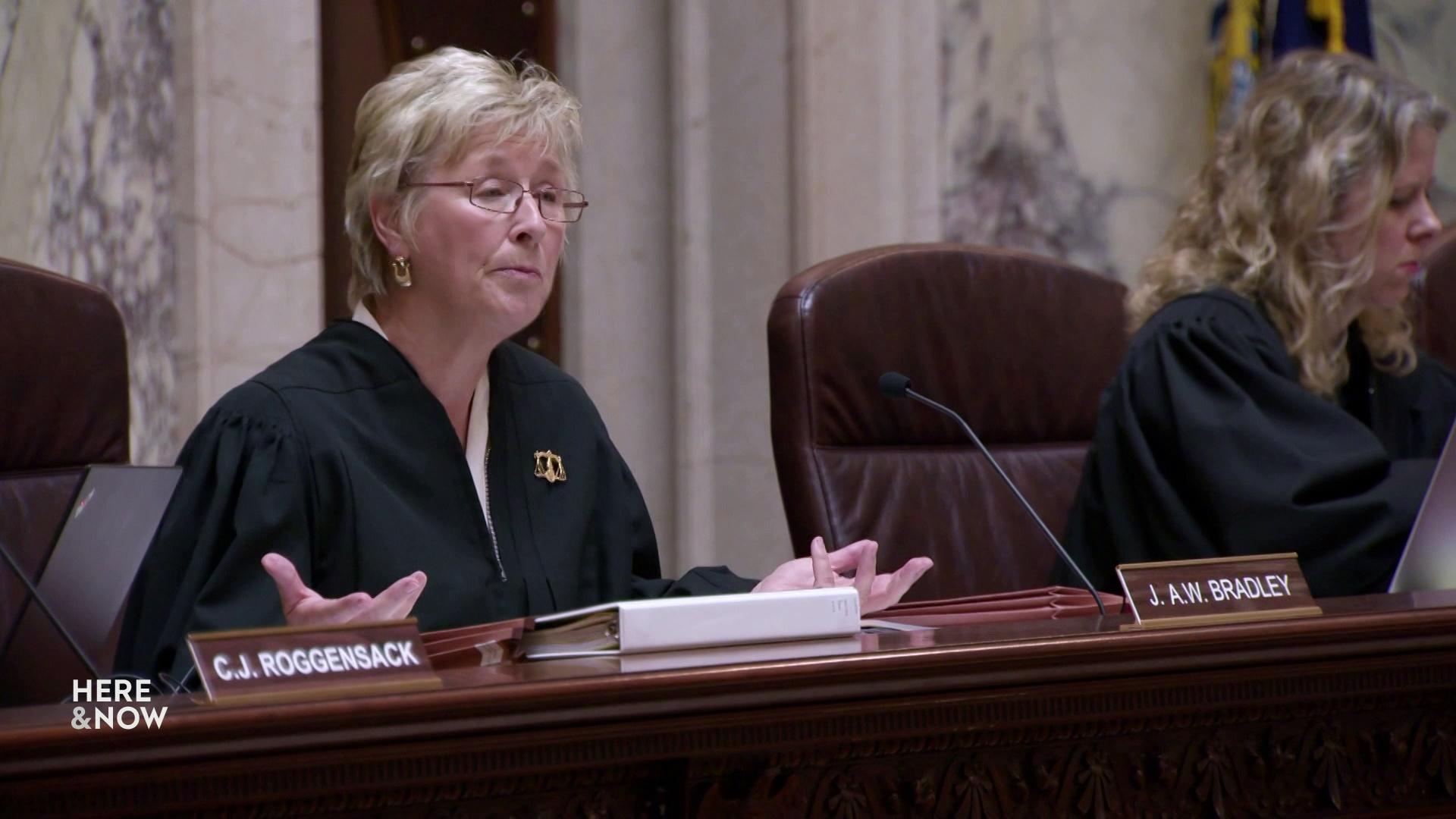


Follow Us